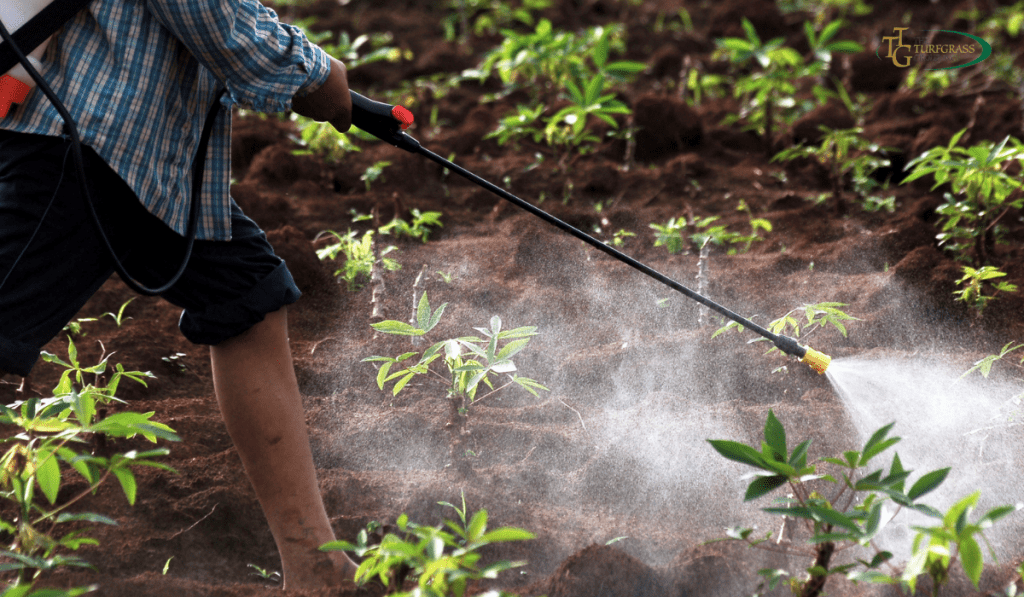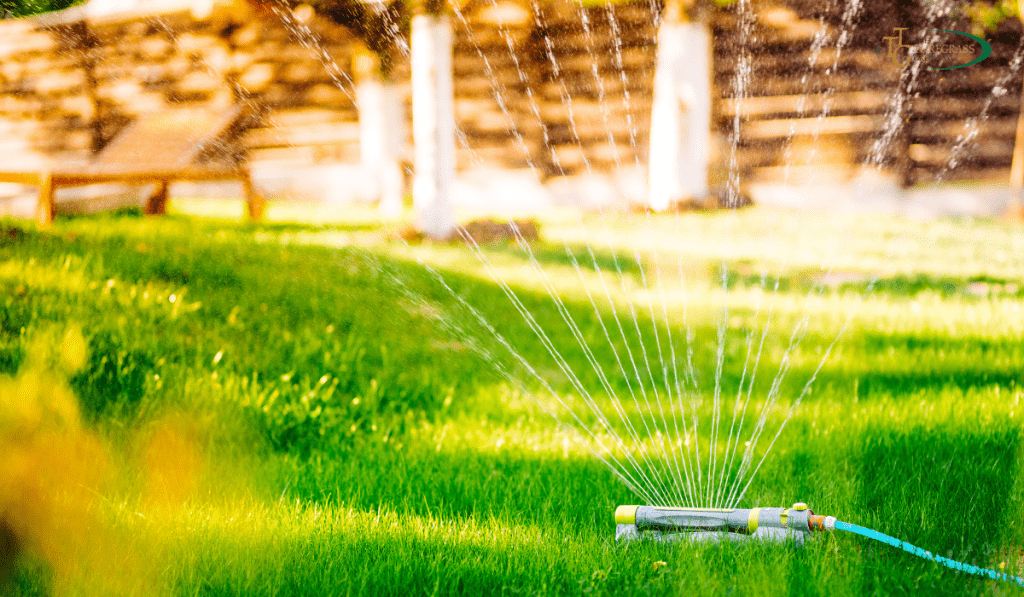
Maintaining a healthy and vibrant lawn requires attention to detail and proper care.
Unfortunately, some common mistakes made by homeowners can inadvertently lead to the demise of their cherished green space.
To avoid these pitfalls and ensure your lawn thrives, here are five mistakes to steer clear of:
Overwatering
Believe it or not, giving your lawn too much water can be just as harmful as underwatering.
Overwatering leads to shallow root growth, making your lawn susceptible to drought and disease.
It’s essential to water your lawn deeply but infrequently to encourage deep root penetration and strengthen the grass’s resilience.
Cutting the Grass Too Short
Mowing your lawn too short may seem like a time-saving strategy, but it can be detrimental to the health of your grass.
Cutting the grass too low weakens the root system, making it vulnerable to stress, pests, and diseases.
Instead, aim to cut only one-third of the grass blade height at a time and maintain the proper mowing height for your specific turf type.
Neglecting Lawn Aeration
Lawn aeration is a critical process that many homeowners overlook.
Compacted soil can suffocate grass roots and hinder water and nutrient absorption.
Aerating your lawn by perforating the soil with small holes allows air, water, and nutrients to reach the grassroots, promoting healthy growth.

Using the Wrong Fertilizer
Using the wrong type of fertilizer or applying it incorrectly can have detrimental effects on your lawn.
Over-fertilization can lead to excessive growth, weak grass, and increased vulnerability to pests and diseases.
It’s essential to choose the right fertilizer for your grass type and follow recommended application guidelines.
Ignoring Early Signs of Pests and Diseases
Pests and diseases can quickly spread and wreak havoc on your lawn if left unattended.
Ignoring early signs of infestations or diseases can lead to widespread damage and even the death of your grass.
Regularly inspect your lawn for any signs of trouble and promptly address any issues to prevent further damage.
By avoiding these five common mistakes, homeowners can maintain a healthy and thriving lawn that enhances the beauty of their property.
Remember to water your lawn appropriately, mow at the correct height, aerate regularly, use the right fertilizer, and be vigilant about pest and disease management.
With proper care, your lawn will become a lush and inviting oasis that you can enjoy year-round.
Conclusion
A lush and healthy lawn adds beauty and value to any home, but certain mistakes can lead to its downfall.
By avoiding these common pitfalls, homeowners can ensure their lawns thrive and remain vibrant.
Remember to water wisely, mow at the proper height, aerate regularly, use suitable fertilizer, and be vigilant about pest and disease management.
With the right care and attention, your lawn will flourish, providing you and your family with a green oasis to enjoy for years to come.
FAQs
How often should I water my lawn to avoid overwatering?
To avoid overwatering, water your lawn deeply once or twice a week, providing about 1 inch of water each time.
What’s the ideal mowing height for most turf types?
Most turf types look best when mowed at a height of about 1 inch. Avoid cutting more than one-third of the grass blade height at a time.
How often should I aerate my lawn?
Lawn aeration is best done once a year, typically in the spring or fall, to relieve soil compaction and promote healthier grass growth.
Can using the wrong fertilizer harm my lawn?

Yes, using the wrong fertilizer or applying it incorrectly can lead to excessive growth, weak grass, and increased susceptibility to pests and diseases.
How can I identify early signs of pests or diseases in my lawn?
Regularly inspect your lawn for signs of brown patches, thinning grass, chewed leaves, or other unusual changes that may indicate pest infestations or diseases.
Can watering my lawn properly help prevent drought stress?
Yes, watering your lawn deeply and infrequently helps develop deep root systems, making the grass more resilient to drought stress.
What should I do if I suspect my lawn has pests or diseases?
If you suspect pests or diseases in your lawn, consult with a professional lawn care service to identify the issue and implement appropriate treatments.
Is it better to use organic or synthetic fertilizer for my lawn?
Both organic and synthetic fertilizers have their benefits, but choosing one depends on your lawn’s specific needs and your environmental preferences.
Can I skip lawn aeration if my lawn looks healthy?
Even if your lawn looks healthy, aeration is beneficial for maintaining long-term soil health and promoting optimal grass growth.
How can I create a personalized lawn care plan for my property?
Creating a personalized lawn care plan involves understanding your lawn’s specific requirements, including grass type, climate, and soil conditions. Consulting with a professional lawn care service can help tailor a plan that suits your lawn’s unique needs.